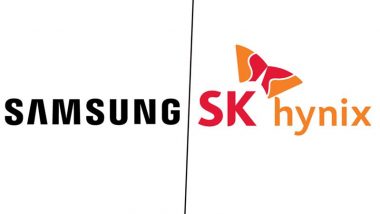
“Do you think the decision to run the B2C business as a separate company, retaining only a 10% stake, aligns with shareholders’ interests, especially since we’ve been investing in this segment over the last few quarters?” asked a shareholder during a conference call . MapmyIndia held the call on December 2, 2024, to discuss recent company changes and address shareholder questions. “You are implementing governance standards in letter, I hope they get implemented in spirit.
While you are ticking all the boxes from a letter point of view, I just hope the boxes get ticked in a spirit point of view,” another shareholder added. Recently, MapMyIndia announced that it will hand over its B2C (business-to-consumer) operations to its CEO Rohan Verma to start his own consumer-focused business. As part of the deal, Rohan Verma will retain a 90% stake in the new venture, while MapmyIndia will hold a 10% stake.

The company will also invest Rs 35 crore through Compulsory Convertible Debentures (CCDs), which will convert into equity in 10 years or at a 25% discount to any third-party valuation. During the call to explain the shift, shareholders questioned the fairness of MapmyIndia’s decision to hand over the B2C business with only a 10% stake, despite prior investments. They raised concerns about the absence of immediate royalty payments and the potential risk-reward imbalance.
Stakeholders highlighted issues around data-sharing, future investor restrictions, and the venture’s structure as areas needing more clarity. Some investors proposed keeping the B2C business in-house to ensure greater returns and accountability. Shareholders emphasized the need for governance that aligns with both the letter and spirit of fairness.
Is the 10% Stake Justified? Rakesh Verma stated that the management considered three options. They are as follows: The first option considered was keeping the B2C business within MapMyIndia as a vertical. However, “the issue that came up was it will adversely impact the P&L (profit and loss) meaning decline in margin,” Rakesh Verma stated.
Over the last two quarters, Verma highlighted the company’s long-term interest in B2C, with a timeline of at least two to three years. However, the response from investors was not as positive as expected, said Verma. He noted that, while they had hoped investors would take a more long-term view, most focused on quarterly results.
The second option involved creating a subsidiary for the B2C business. While MapMyIndia could retain more than 20% ownership, this solution would not have resolved the P&L issues, said Verma. He also pointed out that, although this approach would have addressed the need for the right management expertise to lead the B2C business, it would not have alleviated the financial impact.
The third and final option, which the board chose to pursue, was to hand over the B2C business as a separate entity, run independently. This decision allows the new business to operate with the necessary focus and flexibility while avoiding any adverse effects on MapmyIndia’s financial performance, said Verma. He emphasized that while the company values different investor perspectives, this approach best balances long-term growth opportunities with the immediate need to protect margins and shareholder interests.
“We examined and we found a lot of symbiotic, a lot of advantages if the two companies work closely in the interest of all [and] ultimately lead to a win-win situation. This was the rationale that we decided to let the new company do the B2C business,” stated Verma. Data Transfer A shareholder further asked whether the data would become transactional after five years and if MAPPLS would require MapmyIndia to purchase it at that point.
To which the company stated that the data generated from MAPPLS will be available to MapmyIndia in ‘perpetuity’. However, the company added that “if MapmyIndia needs it after 5 years, they can decide then.” “The data part is not, it’s not time-bound.
Because the reverse is also happening. The MapmyIndia platform is also providing data to the app, with both entities supporting each other for their mutual benefit,” Rakesh Verma explained. Rakesh Verma further stated that the reward will be very high if the new venture takes off.
“This venture has nothing to do with Rohan being my son. I have thought about it and the issue is how it benefits everybody, including the investors of MapmyIndia,” he added. The shareholder stated that if Rohan Verma and the management are so confident about this venture, why not proceed with Plan A, bring the company in-house, and take a hit of 30-35 crores? This way, they could retain the brand and ensure they reap the benefits moving forward.
They emphasized that their primary concern is that the potential rewards should go to the shareholders of MapmyIndia. Ultimately, the shareholders stated that they wanted a “greater share of the pie.” Shareholders larger questions on transparency “Do you think it is fair to give out the brand to this entity, along with all the investments we have made in it over the last couple of years to build it up, in exchange for only a 10% stake? Is that fair for the minority shareholders? Given that we will retain ownership of the brand, is there a royalty arrangement in place to entitle us to a share of any revenue this entity generates in the B2C segment?” asked a shareholder.
Rohan Verma stated that the company’s brand, MapmyIndia, has a strong legacy. In contrast, MAPPLS serves as a relatively new initiative aimed at reaching consumers directly. Rakesh Verma added that MapMyIndia can hold no more than a 20% stake, as it is already investing through CCDs (Compulsorily Convertible Debentures).
It announced that the new venture will be an independent entity, bearing its own expenses, including costs related to people, marketing, and cloud infrastructure. Rakesh and Rashmi Verma, founders of MapmyIndia, will not have any involvement in the new B2C company. “Any startup, that too a startup in a consumer business will be burning cash like anything.
Now how they [MAPPLS] manage that burning cash is their fiscal responsibility. But we don’t want MapmyIndia’s P&L to get affected by this new company’s losses in the P&L, and that’s how we have kept the CCD on one side and 10% stake on the other side,” Rakesh Verma said. “Why did the board not reconsider the option of receiving royalty payments? Why can’t this B2C venture pay royalties on the sales it generates to MapmyIndia?” asked another shareholder.
“The situation is not off the table,” said both Rakesh and Rohan Verma. However, the shareholder insisted, asking why they are not discussing this offer now and why they are treating it as a future possibility. The shareholder pointed out that MapmyIndia is funding the new venture but will not receive any royalty payments, questioning how fair this arrangement is.
“This should be crystalised right now. My job is to ensure that minority shareholders get a fair deal,” he said. “There is no transparency, because you are now leaving it for a period of five years that we will see what is to be done then,” he added.
Is the Risk-Reward Balance Unfavourable for Mapmyindia’s Shareholders? “There are two possible scenarios to consider: In the first scenario, if this entity grows significantly and its valuation increases substantially, despite providing the seed funding during the most vulnerable phase for any startup, our equity stake in the company will still be capped at 35 crores, even when the valuation skyrockets. In the second scenario, if the entity fails to take off for any reason, we may end up with nothing in return. This presents a risk-reward dynamic that could be seen as slightly unfavorable for MapmyIndia’s shareholders,” said the shareholder.
“Now who doesn’t have the confidence in his [Rohan Verma] ability to make things happen, so why should we doubt that?” Rakesh Verma stated in response to the second scenario. “Risk is present in any financial structure, but the risk is mitigated by the wisdom of the entire board, not just one person’s decision,” he further added. “You are giving reasons for the rationale of doing it as a need for the venture.
The terms between MapmyIndia and this new venture, honestly, are not necessarily fair to basically the shareholders of MapmyIndia,” stated another shareholder. Who will be the owner of MAPPLS? Rakesh Verma stated that Rohan Verma is taking ownership of the brand MAPPLS. “One of the purposes, to showcase and compliment MapmyIndia’s offering.
The more data coming out of MAPPLs app, will help MapmyIndia with their operations. However, MapmyIndia is not in a position right now to deal with the burn that comes with the consumer business,” Rohan Verma added. Resource Sharing The company has further stated that a significant portion of the resources and employees will be moving to the new venture by Rohan Verma.
“What I’m trying to understand is that by parting with the brand, MAPPLS, as well as with Rohan and a significant portion of the human resources and other assets that MapmyIndia has already contributed, the reward MapmyIndia should receive should be greater. This reward should not only benefit the small investors but also reflect MapmyIndia’s own contribution to the venture,” a shareholder stated. Should We Expect Consistent Quarter-on-Quarter Performance? “We consulted with our ‘serious’ investors, and all of them said that what matters to them is our quarter-on-quarter, half-year-to-half-year, and year-on-year performance,” Rakesh Verma said.
“So, Mr. Verma, given this, should we assume that there will be no issues with quarter-on-quarter performance moving forward?” asked the shareholder. “No, no I didn’t say that,” Verma responded.
“But you have repeatedly stated that the entire effort was made to address investor concerns regarding quarter-on-quarter performance, so now shouldn’t we expect consistent quarter on quarter performance?” asked the shareholder. The investor intended to highlight corporate responsibility and governance by emphasizing the need for consistent quarter-on-quarter performance. This highlighted a potential disconnect between addressing investor expectations and the company’s ability to deliver on them.
MapmyIndia reported Q2FY25 consolidated revenue of Rs 113.59 crore, up 14.6% YoY from Rs 99.
1 crore. Expenses rose to Rs 72.53 crore from Rs 54.
58 crore, while EBITDA (Earnings Before Interest, Taxes, Depreciation and Amortisation) declined 7.49% to Rs 37.5 crore.
Profit After Tax (PAT) fell 8.3% YoY to Rs 30.35 crore.
On a standalone basis, revenue was Rs 93.72 crore, expenses Rs 52.41 crore, and PAT Rs 31.
30 crore, down from Rs 34.09 crore in Q2FY24. Anticipating Future Concerns and Investor Restrictions “Tomorrow, when you have investors in your new venture, they will likely ask why you are giving this data for free to MapMyIndia.
Won’t that limit or constrain your ability to raise capital? We keep hearing that data is the new oil, that data is everything. If I were an investor in your venture, my first question would be, why is the data being given away for free to MapmyIndia?” asked the shareholder. In response, Rohan Verma stated, “The kind of investors I look for in this business are those who understand me, MAPPLS, and MapmyIndia.
” To this, the shareholder expressed apprehension. “My only concern is that I don’t want a situation a few years down the line. Today you are selling that it’s a win-win situation for both sides.
But tomorrow if Rohan is out there, trying to raise capital, and if he has investors who put these kind of restrictions, then again you will come back saying ‘What can we do now? Its an independent venture, they are taking these decisions’. I am just trying to preempt apprehensions in the future.”, he stated.
This reflected the shareholder’s concern about possible future conflicts and the need for clarity in the venture’s structure from the outset. Today’s update: Outgoing CEO Rohan Verma stated in the Economic Times , that MapMyIndia will not invest Rs. 35 crores in the new B2C venture, after the investor call yesterday.
Read More: Support our journalism: For You.















